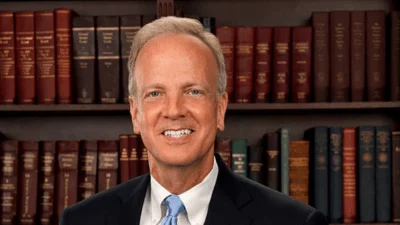Washington, D.C. - Today, in advance of a hearing on the federal government’s inadequate response to the drug crisis, Rep. Elijah E. Cummings, the Chairman of the Committee on Oversight and Reform, announced that some of the top medical groups in the United States have endorsed landmark legislation he introduced with Senator Elizabeth Warren, H.R. 2569, the Comprehensive Addiction Resources Emergency (CARE) Act, to provide the resources and the comprehensive framework needed to combat the epidemic.
“I’m honored that these medical experts who are on the front lines of combating this generational epidemic have endorsed my bill," Cummings said. “These experts know better than anyone how this crisis is ravaging communities in blue states, red states, and purple states. I look forward to hearing their testimony at today’s hearing."
The CARE Act, which is modeled on the bipartisan Ryan White Act passed three decades ago to combat the HIV/AIDS epidemic, has been endorsed by more than 200 groups representing health care professionals, local governments, and public health advocacy organizations. More than 100 House Members have cosponsored the legislation, including all 24 Democratic Members of the Oversight Committee.
Some of the medical organizations that have endorsed the bill include:
* Dr. Susan Bailey, the President-Elect of the Board of Trustees of the American Medical Association (AMA)-the largest professional association for physicians:
“The nation’s epidemic of opioid-related overdoses and deaths continues to worsen. More than two million people in the United States have OUD [opioid use disorder], putting them at a greatly increased risk of early death from overdose, infectious diseases, trauma, and suicide.... Of the 70,237 drug overdose deaths in 2017, 68 percent (47,600) were from opioid-related causes, according to the Centers for Disease Control and Prevention (CDC-KFF). This means that every day in 2017, more than 130 people in the United States died from an opioid-related cause (National Institute on Drug Abuse), and one person died of an opioid-related cause every 11.4 minutes (The National Institute for Health Care Management NIHCM Foundation).... [G]iven the unprecedented nature of the current epidemic, much more funding will be needed to reverse and end this epidemic. We believe the CARE Act, through policy and funding, is a major step forward in addressing the opioid epidemic."
* Dr. Yngvild Olsen, the Vice-President of the American Society of Addiction Medicine (ASAM)-a national medical society representing more than 6,000 physicians and other clinicians who specialize in preventing and treating addiction:
“Payment for treatment alone is just the beginning. Communities need additional resources to create systems of care and social services that give every individual the opportunity to achieve and sustain recovery. One terrific model is the Ryan White Care Act. Ryan White is the Act of Congress that has made it possible for our national goal today to be the end of the HIV epidemic. We need a similar investment so that we can one day achieve the national goal of ending our addiction and overdose crisis. That’s why ASAM supports the CARE Act."
* Dr. Arthur Evans, Jr., the Chief Executive Officer of the American Psychological Association (APA)-the nation’s largest scientific and professional nonprofit membership organization representing the discipline and profession of psychology, with more than 118,400 members and associates:
“APA is grateful for the leadership shown by Chairman Cummings and members of the committee in introducing the Comprehensive Addiction Resources Emergency (CARE) Act (H.R. 2569), and strongly supports the legislation. … APA has joined with over 100 national, state, and local organizations in endorsing the CARE Act. … The Ryan White CARE Act template-providing sustained, flexible funding to communities to support them in addressing a deadly public health crisis-is needed as much for the drug overdose epidemic today as it was for HIV/AIDS in the 1980’s."
* Jean Ross, the President of National Nurses United-the largest union representing Registered Nurses in the United States:
“In order to effectively combat this horrible epidemic and save the lives of our patients, it is necessary for the members of this Committee, and the members of Congress in full, to commit to fully fund the response to the opioid crisis. We urge you to support and pass the Comprehensive Addiction Resources Emergency Act of 2019."
The CARE Act is also endorsed by AIDS United, Drug Policy Alliance, the Association for Addiction Professionals, American Public Health Association, the March of Dimes, American College of Physicians, American Osteopathic Academy of Addiction Medicine, and the Baltimore City Health Department.









